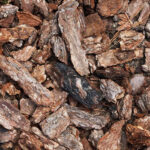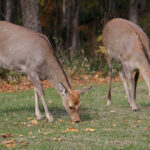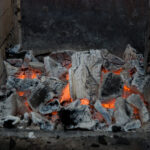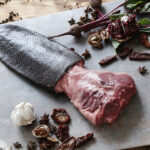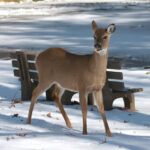If you’ve ever smelled a foul odor coming from your deer meat, you know it can make you question eating and enjoying it.
Sometimes, deer meat smells like poop, and in this article, I’m going to cover the likely reasons why this may happen, and what you can do about it.
Table of Contents
- Why Your Deer Meat Might Smell Like Poop
- Other Reasons Your Deer Meat Might Smell Off
- How to Tell if Your Venison is Spoiled
- Final Thoughts
- Related Posts
Why Your Deer Meat Might Smell Like Poop
Deer meat that has gone bad can emit a variety of foul smells. Sometimes, it will actually smell like poop. In those cases, these are the most likely causes.
Waiting Too Long to Dress
One of the biggest mistakes hunters make after a kill is hesitating to start field dressing.
They might hum and haw about the method of dressing to use, take a photo, drag the deer around to find a good spot, or stop for lunch before dressing.
The sooner you start field dressing, the better the state of your meat. After a kill, bacteria start spreading at an exponential rate, so you want to start dressing within minutes of the kill, ideally.
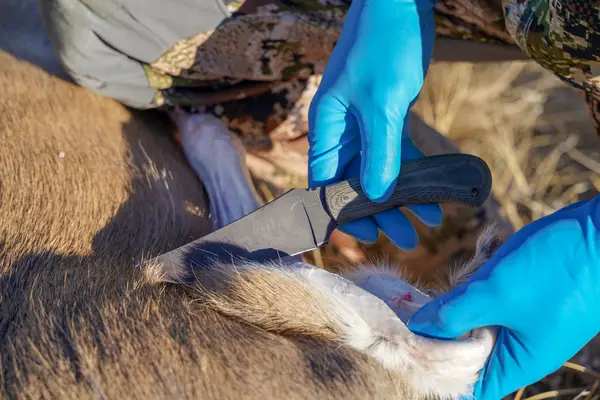
If you shoot the deer in the liver, the deer will die, but not necessarily right away. Meaning you might not get to it until the next morning or later. This could be one reason that is out of your hands!
If it takes a long time to get to a deer after it dies, all of the meat might be ruined. The outside temperature will affect this a bit, but not much. In these cases, you will have to use your judgment about what to do with the meat.
If you dispose of it, do it responsibly. If you choose to throw it in a stew anyway, do so at your own risk.
Diseased or Infected Deer
Another common reason your kill might smell like poop is if the deer was diseased or had an infection. The deer meat might smell rancid, it might have a greenish tinge to it, or the deer might have other signs of disease.
There are many signs of a diseased deer to look out for, like drooping ears, abnormal behavior, or a thin frame.
Deer can carry dozens of diseases, some contagious to humans, some not. In any case, it is usually best to avoid consuming meat from infected deer and to dispose of the carcasse responsibly.
The American Veterinary Medical Association has a thorough catalog of disease precautions for hunters that is worth checking out.
Gut Shots
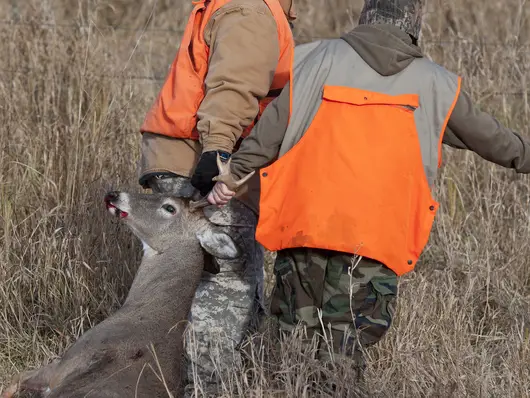
Every hunter tries to carefully place their shots, but things happen and sometimes a shot ends up in a deer’s gut.
If you shoot a deer in the gut, the longer it takes to collect the body and start field dressing, the more contaminated the meat will be.
There are ways to minimize the lost meat after a gut shot, but most likely you will lose at least a portion.
If you get to the deer quickly enough, you should be able to salvage areas like the back strap and neck. Then start dressing, assess the damage, and thoroughly clean the stomach cavity to assess what needs to be discarded.
The key to saving a gut shot is time. The longer it takes, the further the bacteria will spread into other parts of the body.
Exposure to Intestinal Contents
In a similar fashion, when dressing your kill, of course you want to avoid knicking the stomach or intestinal lining and do your best to keep the contents of the bowels in the bowels.
Mistakes happen, things leak, and sometimes you end up with intestinal contents on your meat.
If you can clean the area right away, you might not have to discard anything. If you let it sit contaminated for a long time, you might have to get rid of some meat.
If you let the meat marinate in poop for long enough, it might be safe to eat when cooked, but it might smell (and taste) like poop for good.
Storing the Carcass at Warm Temperature
You’ll want to cool the abdominal cavity right away and get the carcass below 40°F as soon as possible. With proper storage, you can eat venison that is pretty old!
The bacteria that spoil meat thrive above 40°F, spreading rapidly. This can be difficult, especially if you have to transport the body a long distance for processing.
This is also a particular concern for anyone trying to age their meat at home. Aging your meat for 3 to 21 days can transform the flavor of your steaks, but it also comes with a host of hurdles that could potentially contaminate the entire carcass.
If you are aging your meat at home, maybe limit yourself to just a few days or cut it up and hang it in a spare fridge, unless you have access to a walk-in fridge or a perfect weather window.
Related: How Long Does Frozen Venison Sausage Last?
Exposure to Other Contaminated Carcasses
Even if your kill was handled perfectly in the field and in transport, if it comes into contact with other contaminated meat during processing, your deer might be ruined.
This is a particular concern when you hire a business to process your meat for you, and you don’t know how it is being stored or transported.
Other Reasons Your Deer Meat Might Smell Off
The above reasons are some possible causes of your deer meat smelling like poop, but there are some other scents that can infiltrate your meat and your nostrils.
Meat From a Rutting Buck
If you kill a buck during peak rut, some people report a strong musky smell that lingers in the meat, even if it was handled perfectly. You can try to wash the meat thoroughly, but you might not be able to get the smell out.
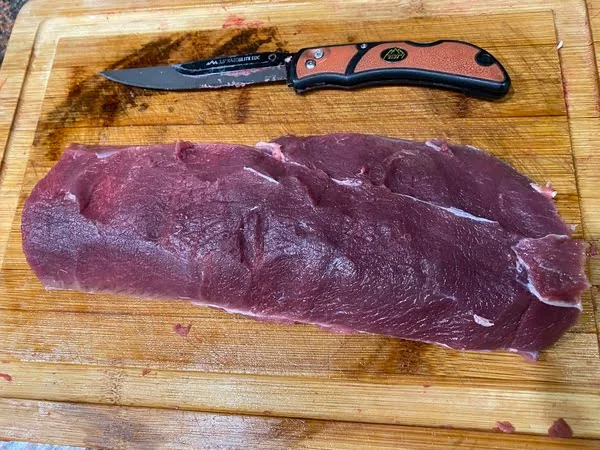
The meat is still safe to eat, but you might want to use it for meat sticks, jerky, or sausages, where the aroma will be less impactful.
Fat Left on the Meat During Storage
A common mistake when preparing meat for storage is leaving the fat, or tallow, on the meat. Deer tallow will ruin the flavor of your meat, but it also stores poorly. Freezing meat with too much fat on it will cause it to smell and taste off.
Improper Storage
After butchering, you need to make sure you store your meat properly, or else it will spoil.
Deer meat can last months if it stays frozen, or for a few days in the fridge. If you leave it above 40°F, it will spoil proportionately faster.
How to Tell if Your Venison is Spoiled
Fresh venison has a mild gamey, earthy aroma or no smell at all. Venison that has spoiled has some pretty telltale signs that it has gone bad.
To tell if your venison has spoiled you’ll want to check the color, scent, and texture.
- Fresh meat should be brownish dark-red. Spoiled meat will develop a greenish, grayish, dark brownish, or blackish tint.
- Fresh meat will have a distinct smell, but it won’t have a sour or bad odor. If your meat smells off at all, it is best to discard it.
- Fresh meat will be smooth and moist to the touch. Spoiled meat can develop a slimy texture which, combined with an off-color or smell, will indicate it has gone bad.
Final Thoughts
If you handle your meat well from kill to kitchen, you shouldn’t detect any deer meat that smells like poop.
However, not every kill will be perfect and sometimes you will have to discard some venison. Hopefully, this article has helped you identify where you have gone wrong or will help you prevent making mistakes in the future.
Thanks for reading!

